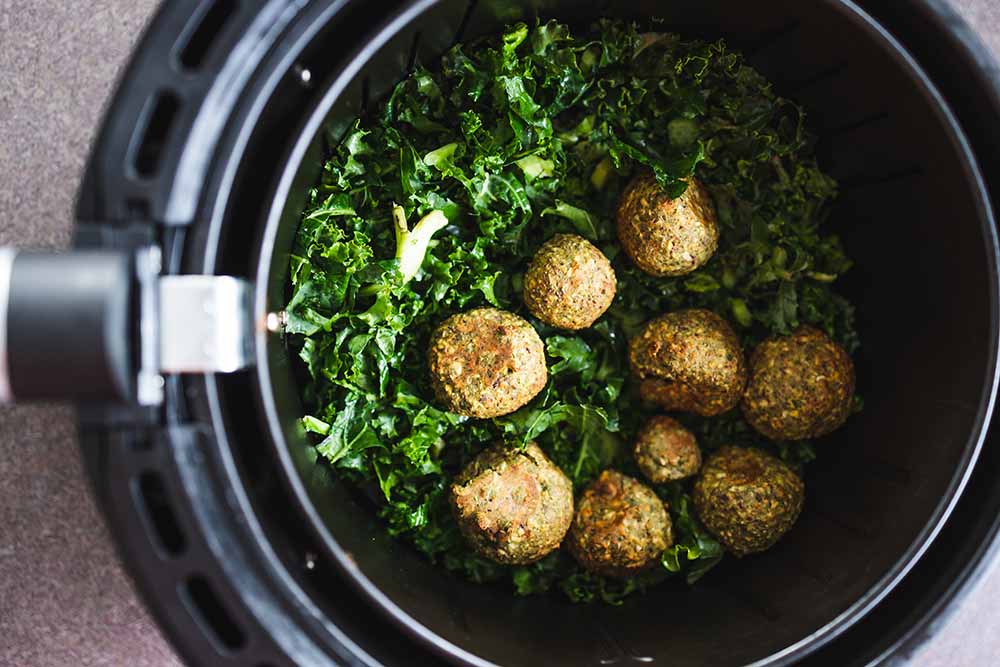Power up

There’s a lot of pressure when you’re eating for two to make sure you’re chomping only on what’s best for baby, and sometimes the advice you hear can be contradictory. Eat more fish, but beware of mercury. Fruits are loaded with vitamins … and sugar. You need protein, but keep your cholesterol down.
Instead of standing in the produce section racking your brain (or Googling on your smartphone) and trying to remember what nutrients you can get from an apricot, make sure your shopping list includes these six standout power foods. Jen House, MSc, RD, dietitian and owner of First Step Nutrition in Calgary, Alberta, Canada, says each all-star dietary staple will provide your body with the key nutrients it needs to grow a healthy bambino.
Eggs
The humble egg deserves the hype. These small but mighty (not to mention affordable) orbs contain more than 12 vitamins and minerals, including vitamins A, D and B12. Their bright yellow yolks are also a good source of choline, which plays an important role in brain development, especially in the third trimester.
“Eggs contain the perfect balance of amino acids—the building blocks of protein—and are considered a ‘gold-star’ protein,” say House. Each cell in your budding babe’s body is largely made up of protein, and you need your fair share, too. So, crack open a couple for breakfast, or boil some to stash in the fridge for a quick bite—just make sure the yolks are cooked through completely to avoid any risk of salmonella.
Legumes
Speaking of protein, chickpeas, lentils and pinto beans are another reliable source. But these much-lauded legumes bring so much more to the table. “[They] are all great sources of folate and fiber,” notes House. “Folate is important early in pregnancy to prevent neural tube defects (like spina bifida), and a high fiber diet is important for pregnant women to prevent the constipation and hemorrhoids that can be common due to hormonal changes.”
Most legumes readily take on a variety of flavors, so they’re easy to incorporate into your favorite recipes. Toss them in a salad or soup, or swap them in as a rice substitute.
Beef
There’s no need to be wary of red meat as long as you choose your cuts carefully. Look for lean options with the fat trimmed off. As House points out, “Beef is one of the best sources of iron and zinc, both of which pregnant women need more of!”
Iron is vital to support a mom-to-be’s expanding blood volume, which can increase by as much as 50 percent during pregnancy. It’s no wonder the recommended daily allowance (RDA) of iron jumps from 18 milligrams to milligrams mg when a woman is expecting. Similarly, zinc requirements are upped from 8 milligrams to 11 milligrams when pregnant because zinc is crucial for cell reproduction and immunity. Bear in mind, you’ll want to steer clear of deli meats and raw or undercooked selections.
Yogurt
“Yogurt, cheese and milk contain the most bioavailable calcium,” says House. Why should you opt for yogurt? Because in addition to the boost of calcium, you’ll also get a helping of protein and folate, and the active cultures in yogurt can steady an uneasy stomach. Add a scoop to smoothies, whip up a yogurt-based dip, or stock the fridge with single-serving cups for easy snacking.
Your growing sprout needs calcium to help build his bones, and you need plenty, too, to stay strong throughout your nine months of bumphood. If you don’t get enough—about 1000 milligrams or three servings per day—then baby will leach what he needs from your calcium stores (i.e., your bones!). But don’t worry; House explains, “Although your needs are increased [while expecting], you body is more efficient at absorbing calcium when you’re pregnant—amazing!”
Salmon
Cold-water, fatty fish like salmon are prime picks for omega-3 fatty acids, particularly docosahexanoic acid (otherwise known as DHA). These good fats are vital for your wee one’s brain and eye development in utero, which is why the Food and Drug Administration urges pregnant women to eat 8-12 ounces of fish every week. “If you are able to eat fish twice per week,” says House, “then you will be getting enough DHA.” Talk to your OB about DHA supplements if you’re concerned you’re not meeting the recommended amount.
When you’re at the seafood counter or fishmonger, opt for wild over farm-raised. If you don’t care for the taste of salmon, rely on other low-mercury fish, including sardines and canned “light” tuna.
Leafy greens
Don’t forget your veggies! “Kale, spinach and [Swiss] chard are nutrition powerhouses,” says House. “They will help build both a healthy mom and baby!”
These green giants are packed with antioxidants, folate, calcium, as well as vitamins A, C and K, so don’t be shy about adding them to the menu. Try them raw in salads and on sandwiches, or sneak them in with a green smoothie. You can even curb your salty potato chip cravings by baking a batch of kale chips instead
With these six stellar foods in mind, figuring out what to eat isn’t nearly as complicated as it might seem. So stroll the stalls of the farmers market (or the aisles at the grocery store) with confidence because you know what you and your baby need most and exactly where to find it.







